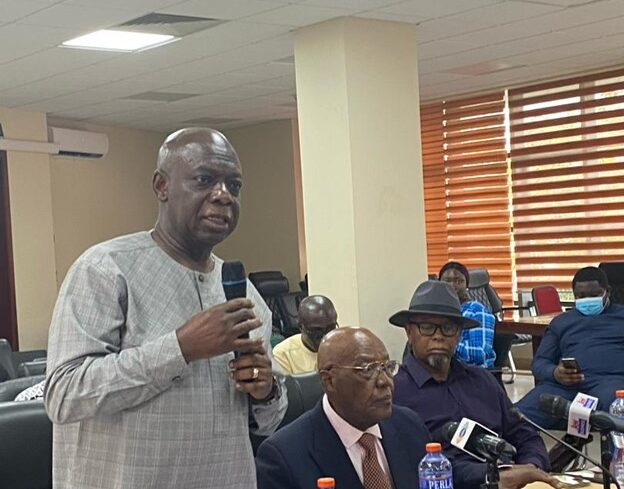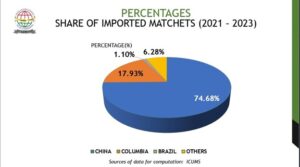
The Ghana International Trade Commission (GITC) has announced a significant shake-up in the country’s machete market, imposing a 65 percent quota on all imports starting March 30, 2024.
This move aims to protect the industry’s leader, Crocodile Matchets Ghana Limited (CML), from what the GITC deems unfair trade practices related to surging imports.
CML initially petitioned the GITC in 2021, alleging dumping, subsidisation and an influx of counterfeit and substandard matchets, which it said was negatively impacting its market share and sales volumes.

While extensive investigation could not substantiate the first two claims – of dumping or subsidisation, the commission found evidence of a sharp increase in imports, particularly from China, causing “serious injury” to the domestic industry.
To address this concern, the GITC implemented a 24-month quota system, limiting the total annual import volume to 1,534.4 metric tonnes, a significant reduction from the current 2,365.85 tonnes. This translates to a 65 percent decrease in imports, with the remaining 34 percent expected to be compensated by increased production from CML.
The quota allocation will see China, the primary source of imports with a 74.68 percent share, have its quota reduced to 1,145.85 tonnes. Colombia, with a 17.93 percent share, will be limited to 275.17 tonnes. Brazil’s negligible 1.10 percent share falls below the three percent threshold for quota restrictions, Board Chair, Dr. Edmund Prempeh (Nana Adu Gyamfi), said during the determination.
“This determination epitomises our commitment to safeguarding our domestic industry against unfair practices in the commerce of trade,” Dr. Prempeh said, stressing that this action is not intended to restrict trade entirely; but rather to create a level playing field for domestic producers. The commission, he added, hopes the quota will allow CML to regain market share and improve its competitiveness.
Falling standards
He added that engagements with the Ghana Standards Authority, as well as the Intellectual Property (IP) office of the Registrar-General’s Department, confirmed Crocodile Matchets’ exclusive rights to the ‘crocodile’ trademark.
“Field surveys were undertaken in markets where retailers and wholesalers of machetes confirmed that imported matchetes passed off with the logo/designs of Crocodile Matchets embossed on them were being sold at fairly cheaper (lower) prices than those produced by Crocodile Matchets Limited,” he said, adding that testing against its established parameters, namely: dimensional, hardness, tensile strength and marking requirements.
“The quality evaluation report by GSA established that all the imported machete samples submitted for testing, including counterfeited and non-counterfeited ones, failed to meet the full requirements of the national standards,” he added.
Increased confidence
The Secretary of the Commission, Frank Agyekum, expressed confidence that the determination would engender increased confidence, as the claims were subjected to “rigorous processes” that aligned with standards set by the World Trade Organisation (WTO).
“All of our processes are extensively data-driven, ensuring fairness to all players involved, and we are optimistic that this development will encourage stakeholders across the board to reach out to the GITC whenever they have any considerations,” Mr. Agyekum said.
Managing Director at CML, Sjoerd Grueter, was satisfied with the determination, describing it as a “big win” for local producers.
He was confident in the company’s rebound, highlighting that the decision will boost performance and lead to more jobs beyond the current 300 staff. He also suggested that the worst was over for the manufacturer.
Elaborating on the impact of development, he explained to the B&FT that the influx of cheap, substandard machetes had put pressure on prices. These inferior products, averaging less than GH¢30, undercut the market for Crocodile Machetes, which typically sold for between GH¢35 and GH¢40.
“At that price point, even GH¢5 matters to the consumer. However, what they try to save in nominal terms, they have to pay for with substandard items that break easily and pose a safety risk to users,” Mr. Grueter said.
Chief Executive Officer at the Association of Ghana Industries (AGI) agreed with sentiments earlier expressed by Mr. Agyekum, saying it was a poignant demonstration of adherence to best practices, while safeguarding the interest of all stakeholders.
The verdict holds great importance for local producers amid the implementation of the African Continental Free Trade Area.









